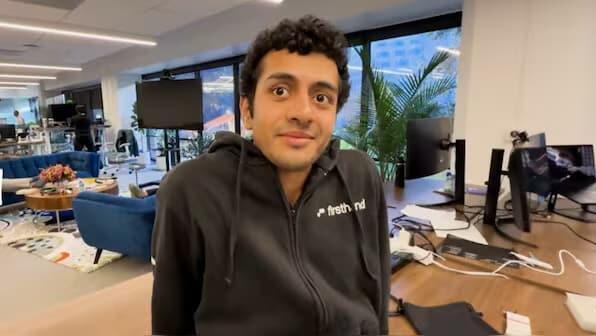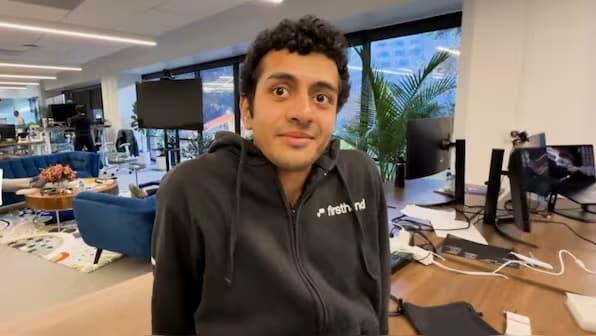
Remote work’s dark side: The Soham Parekh story
The Indian engineer’s juggling act forces tech CEOs to rethink flexibility.
With waves of layoffs still in the background and the AI revolution in full swing, a single post by Playground AI founder Suhail Doshi exposed not just a person but a phenomenon that’s driving Silicon Valley crazy.
The post was about an Indian engineer named Soham Parekh, who worked at no fewer than four Silicon Valley technology startups at the same time. The post went viral, racking up tens of millions of views and reigniting the debate about tech employees secretly working multiple jobs, alongside confessions from founders who’d also employed Parekh.
Doshi claimed he fired Parekh after discovering he was working for other companies simultaneously. He warned his followers that Parekh was working at three or four companies at once and said he’d asked him to stop defrauding startups, but a year later, Parekh is reportedly still doing it.
Soon after, a wave of confessions began from CEOs who said they too had hired and fired Parekh. For example, the CEO of Lindy, an AI startup for automating workflows, said he had recently hired Parekh and let him go after Doshi’s post on X.
The uproar over Parekh’s story has highlighted a trend that started in the late COVID-19 era, when many tech companies were operating fully remotely. Some workers held two or more jobs to maximize their pay and protect themselves from layoffs in a volatile market. It was also a time when companies were hiring aggressively to fuel growth.
Remote work enabled ambitious employees to earn double the salary by working longer hours, but Parekh’s claim that he worked 140 hours a week has raised eyebrows. Did he use AI tools to juggle multiple jobs? Did he outsource work to junior developers? In an interview with TBPN, a technology, business, and programming channel, Parekh claimed that since 2022 he has held multiple jobs but did not use AI tools or subcontractors to manage the workload. Still, he is not considered the most reliable source.
Parekh said he chose to work multiple jobs for financial reasons. He also claimed he was accepted to graduate school but decided to work instead. However, on a résumé revealed by a former employer on X, Parekh falsely listed a master’s degree in computer science from the University of Georgia.
Opinions are divided about the prodigy engineer who managed to land so many roles, some as a founding engineer with generous stock options and compensation packages. While some call him a fraud or scam artist, others describe him as talented, likable, and exceptionally skilled at job interviews. In the same interview, Parekh said he had started working at Darwin Studios, a startup developing an AI-powered video editor.
In a twist that could only happen in today’s viral world, Parekh, the so-called startup swindler, has become almost a cult figure. Some people on X even urged him to start his own company if he really used AI to handle the workload, or at least to launch a business helping candidates prepare for interviews, given how well he navigated hiring processes.
Parekh is far from the only person in Silicon Valley working multiple jobs. According to CNBC, from 2020 to 2023 there was a 30% increase in employees holding more than one job. But the environment is changing. More companies are bringing employees back to the office. Hiring is slowing due to the rise of AI tools. In Israel, the number of high-tech jobs is shrinking. On the other hand, the battle for AI and machine-learning talent is fierce, and cross-border hiring continues to grow.
Is remote work at risk?
There’s no doubt that Soham Parekh’s story could not have happened without remote work. But the phenomenon of double-dipping isn’t widespread enough to make most employers abandon hybrid or remote setups altogether. The flexibility and benefits of working from home still outweigh the downsides, but Parekh’s case does illustrate the need for tighter screening and better oversight, especially for remote teams scattered across countries.
Early-stage startups, in particular, often avoid remote work altogether because a collaborative in-person environment can drive creativity and fast problem-solving, things harder to achieve when teams don’t interact face-to-face.
For example, according to TechCrunch and CNBC, some companies that discovered Parekh’s double-dipping have now updated policies, requiring exclusivity declarations, stricter account monitoring, and daily meeting attendance. While some CEOs have brought teams back to the office and remain skeptical of remote work, others insist that trust and flexibility are still the better path. As Dropbox CEO Drew Houston said on the “Leadership Next” podcast: “Asking someone to come back to the office fully is like forcing people back into malls and movie theaters. There’s nothing wrong with the cinema, but it’s a different world now.” His philosophy? “Trust over surveillance.”
JPMorgan Chase & Co. brought all employees back to the office earlier this year, following Amazon and other tech giants. JPMorgan CEO Jamie Dimon defended the move at Stanford University, saying remote work hurts junior employees who miss out on real-time learning.
Just as scams exist on Tinder or in real estate, dishonest workers exist in startups too, but they remain the exception. Most remote employees are loyal, committed, and often more productive than those in the office full-time. In Israel, most high-tech companies still operate on a hybrid model, and top talent expects at least partial remote work. The option to work from home has also helped Israeli companies maintain operations during wartime and emergencies in recent years.
Still, at early-stage startups it’s more common to require everyone to work on-site. “When I’m building a startup’s first team, I think it’s right to bring everyone to the office. It makes sense for early employees to work together on-site, and those who join at this stage understand they’re signing up for something different,” a CEO previously told Calcalist.
Hiring abroad has also helped Israeli tech companies maintain business continuity during periods of mass military reserve duty and escalated conflicts with Iran. Parekh’s case is unlikely to halt hybrid work, remote setups, or overseas hiring, but it will probably push employers to tighten their vetting, increase oversight, and train managers to lead distributed teams more effectively.














